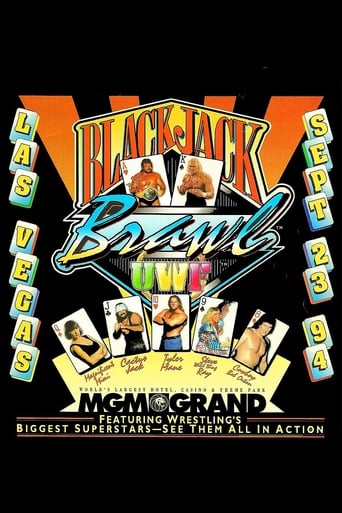
Herb Abrams
Herbert Charles Abrams, also known by the nickname Mr. Electricity, was an American professional wrestling promoter from Queens, New York, who founded the Universal Wrestling Federation in 1990. Herbert Charles Abrams was born on July 9, 1955, in Queens, New York, the oldest child of Sonia (née Hoffman) and Abram Abrams. His father, Abram Abrams, was a contract salesman of women's dresses who employed 42 workers at his Manhattan office as of 1949. He attended William Cullen Bryant High School in Long Island City, New York. In 1976, Abrams approached photographer Bill Apter while he was shooting Superstar Billy Graham on the streets of New York. He told Apter to spread word that any wrestlers who made an appearance at his father's clothing store in Flushing, Queens, would be allowed to take dresses for their wives as compensation. Abrams founded the Universal Wrestling Federation in 1990, receiving $1 million from SportsChannel America to produce the weekly television program UWF Fury Hour. In August 1990, during a press conference announcing the UWF's launch, Abrams was asked how he expected to succeed in the wrestling business with no prior experience in it. Abrams responded: "What they're looking for, I have, and that's the Hollywood glitz". Abrams ran his first television tapings at Reseda Country Club in Reseda, California, that fall; the venue's owners would later sue Abrams for money owed. Abrams soon gained a reputation for chronically failing to pay venue owners, and even his own wrestlers. As the UWF's head booker, Abrams was often criticized for the promotion's inconsistent storylines, and matches that lacked clean-cut finishes. For the first 11 episodes of Fury Hour he was an on-screen commentator alongside Bruno Sammartino,[9] for which the readers of Wrestling Observer Newsletter voted him Worst Television Announcer of 1990. Prior to earning that dubious distinction, Abrams had used a jobber on Fury Hour named "Davey Meltzer"—an obvious jab at journalist Dave Meltzer, Wrestling Observer Newsletter editor-in-chief and publisher. Abrams was replaced on commentary by Craig DeGeorge, but stayed on-screen as an interviewer. After the UWF's SportsChannel America deal expired without extension in September 1991, Abrams' live show schedule went from regular, to sporadic. In 1994, coming off a divorce, Abrams made one final, grand attempt to make an impact in professional wrestling: the television special UWF Blackjack Brawl, broadcast live from Las Vegas, Nevada's MGM Grand Arena. While the MGM Grand Arena seated approximately 17,000 , Abrams sold only approximately 300 tickets, making the event an enormous commercial failure. Abrams moved back to New York City soon afterward to care for his ailing mother, and never promoted another UWF event. Abrams died on July 23, 1996, at St. Vincent's Hospital in Manhattan, New York of a heart attack while in police custody. Before his death, police had found Abrams in his Manhattan office naked and covered in baby oil, destroying furniture with a baseball bat. Abrams' autopsy showed he had cocaine and valium in his system when he died. Abrams was buried in New Montefiore Cemetery in West Babylon, New York.
- Umutwe: Herb Abrams
- Icyamamare: 0.001
- Azwiho: Directing
- Isabukuru: 1955-07-09
- Aho yavukiye: Amarillo, Texas, USA
- Urupapuro rwitangiriro:
- Birazwi kandi: Mr. Electricity



